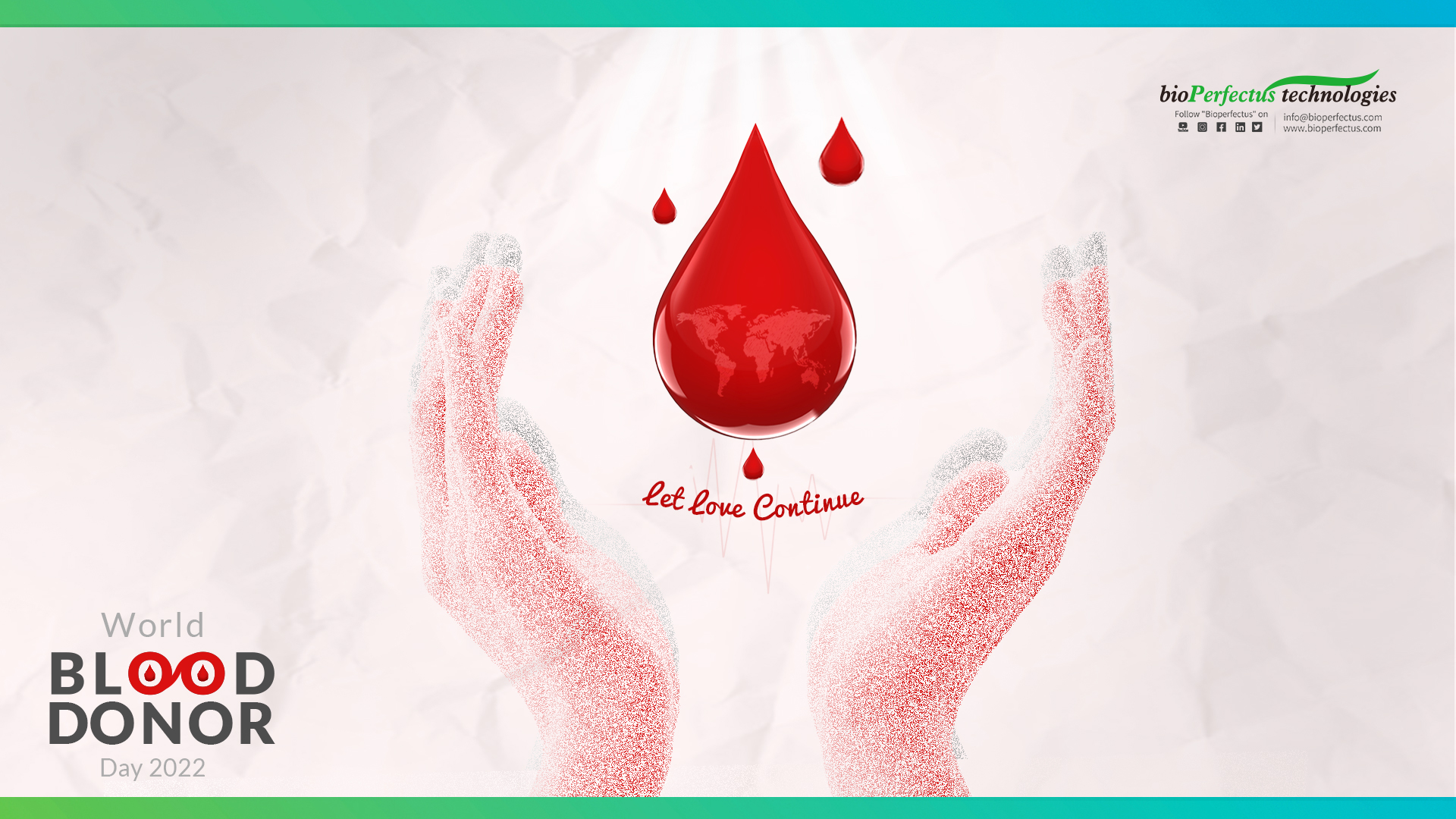
Countries worldwide celebrate World Blood Donor Day (WBDD) every year. The event serves to raise awareness of the need for safe blood and blood products and to thank voluntary, unpaid blood donors for their life-saving gifts of blood.
Safe blood and blood products and transfusions are critical to the care and public health. They are vital in treating people suffering from various diseases resulting from accidents, natural disasters, and armed conflict. The need for blood is universal, but access to it is limited – especially in low- and middle-income countries, where shortages particularly impact women and children as these tend to be the people who need blood most.
To minimize the risk of the transmission of infection through the route of transfusion:
1. All whole blood and apheresis donations should be screened for evidence of the presence of infection prior to the release of blood and blood components for clinical or manufacturing use.
2. Screening of all blood donations should be mandatory for the following infections and using the following markers:
§ HIV-1 and HIV-2: screening for either a combination of HIV antigen-antibody or HIV antibodies
§ Hepatitis B: screening for hepatitis B surface antigen (HBsAg)
§ Hepatitis C: screening for either a combination of HCV antigen-antibody or HCV antibodies
§ Syphilis (Treponema pallidum): screening for specific treponemal antibodies.
3. Screening of donations for other infections, such as those causing malaria or Chagas disease, should be based on local epidemiological evidence.
4. Screening should be performed using highly sensitive and specific assays that have been specifically evaluated and validated for blood screening.
5. Quality-assured screening of all donations using serology should be in place before additional technologies such as nucleic acid testing are considered.
6. Only blood and blood components from donations that are non-reactive in all screening tests for all markers should be released for clinical or manufacturing use.
7. All screen reactive units should be clearly marked, removed from the quarantined stock, and stored separately and securely until they are disposed of safely or kept for quality assurance or research purposes, in accordance with national policies.
Infectious disease implications in the blood samples
Blood product safety is a high priority for manufacturing industries, hospitals, and regulatory agencies. An essential step in ensuring safety is screening donated blood for infectious diseases.
As one of the clinical common sample types, blood can provide predictive and diagnostic information for many infectious diseases, such as HIV, Infectious hepatitis (HBV, HCV), vector-borne diseases (Malaria, Dengue, Zika, Yellow Fever, Chikungunya), Ebola... Using molecular detection technology to analyze blood samples will give early warnings in the beginning stage of infectious diseases, click here to learn more about Bioperfectus Product Center or click here to download Bioperfectus Research Use Only Life Science Leaflet.
Besides blood samples, Bioperfectus provides real-time PCR kits and nucleic acid extraction solutions to detect the pathogens in swab wash, urine, fecal, body fluid, and bacterial culture medium samples.

One Solution, One Supplier, One Response
Bioperfectus’s commitment to developing fast, accurate and high-volume testing technologies help detection of infectious disease by blood samples, even in the context of infectious disease outbreaks, and contributes to saving lives worldwide.
Contact us today by info@bioperfectus.com to learn more about infectious disease diagnostics.
Reference
1. WHO, World Blood Donor Day 2022, https://www.who.int/campaigns/world-blood-donor-day/2022.
2. Screening Donated Blood for Transfusion-Transmissible Infections: Recommendations, National Library of Medicine, National Center for Biotechnology Information, World Health Organization, 2009, https://www.ncbi.nlm.nih.gov/books/NBK142989/.
3. Molecular Techniques for Blood and Blood Product Screening, Recommendations, National Library of Medicine, National Center for Biotechnology Information, https://www.ncbi.nlm.nih.gov/pmc/articles/PMC7120069/.

